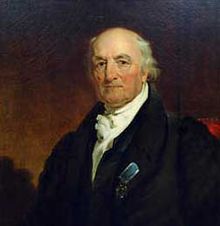Richard Varick | |
|---|---|
 Portrait of Varick by Henry Inman (ca. 1831) | |
| 45th Mayor of New York City | |
| In office October 12, 1789 – December 31, 1801 | |
| Preceded by | James Duane |
| Succeeded by | Edward Livingston |
| Governor | George Clinton (1789–1795) John Jay (1795–1801) |
| 2nd Attorney General of New York | |
| In office May 14, 1788 – September 29, 1789 | |
| Governor | George Clinton |
| Preceded by | Egbert Benson |
| Succeeded by | Aaron Burr |
| 6th Speaker of the New York State Assembly | |
| In office January 12, 1787 – December 10, 1788 | |
| Preceded by | John Lansing Jr. |
| Succeeded by | John Lansing Jr. |
| 15th Recorder of New York City | |
| In office February 20, 1784 – September 29, 1789 | |
| Preceded by | John Watts |
| Succeeded by | Samuel Jones |
| Personal details | |
| Born | March 15, 1753 Hackensack, Province of New Jersey, British America |
| Died | July 30, 1831 (aged 78) Jersey City, New Jersey, U.S. |
| Resting place | First Reformed Dutch Church Cemetery in Hackensack, New Jersey, U.S. |
| Nationality | American |
| Political party | Federalist |
| Spouse | Maria Roosevelt |
| Military service | |
| Allegiance | United States |
| Branch/service | Continental Army New York State Militia |
| Years of service | 1775 - 1801 |
| Rank | Colonel |
| Battles/wars | American Revolutionary War |
Richard Varick (March 15, 1753 – July 30, 1831) was an American lawyer, military officer, and politician who has been referred to as "The Forgotten Founding Father."[1] A major figure in the development of post-Independence New York City and the state of New York, Varick became the 45th Mayor of New York City in 1789 and served eleven consecutive one-year terms until 1801.[2]
Previous to his terms as mayor, Varick served as the 14th Recorder of New York City from 1784 to 1789. An office that no longer exists, it equates to 'Chief Legal Officer'. Along with Samuel Jones, Varick codified New York State's first statutes after the American Revolution in the Laws of New York (2 vols., 1789). This body of work laid the legal groundwork for Varick to institute the Law of New York, the New York City Administrative Code, and the Rules of New York City during his terms as mayor.[3] Additionally, under his leadership, the progenitors of the New York City Department of Health, the New York Stock Exchange, and many other organizations would be created. These organizations established the foundation of modern New York City.
During the American Revolutionary War, Varick served as George Washington's aide-de-camp and private secretary. Varick's body of work from this era would lead to the Varick Transcripts, which now live in the Library of Congress. The value of these documents has been noted throughout their lifetime as invaluable to the understanding of the formation of the United States.[3]
Varick was a founder of the Society of the Cincinnati and the American Bible Society, and was a slaveholder.[4] He was also a longtime trustee of Columbia University, where he was chairman of the board from 1810 to 1816.[5]
- ^ Cite error: The named reference
Cushman2010was invoked but never defined (see the help page). - ^ "Guide to the Papers of Richard Varick 1743-1871 (Bulk 1775-1830) MS 655". dlib.nyu.edu. New-York Historical Society. Retrieved 21 June 2017.
- ^ a b Michael Bellesiles. "Richard Varick". www.encyclopedia.com. Retrieved 16 October 2019.
- ^ Zauzmer Weil, Julie (15 February 2022). "Asked to help, Post readers sent searing evidence about dozens more enslavers in Congress". Washington Post. Retrieved 15 February 2022.
- ^ "Columbia Alumni News, Volume 8". Columbia University Press. 1917. Retrieved 29 April 2020.